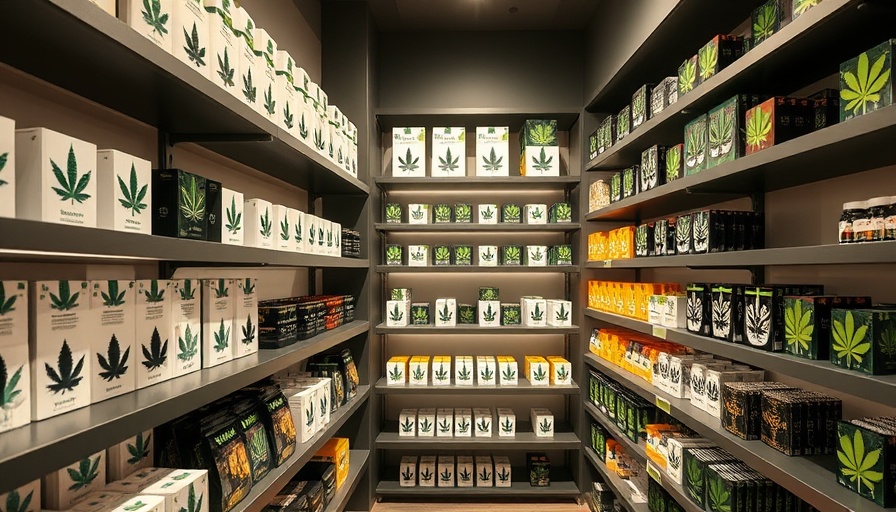
Maryland Sets New Standards for Cannabis Regulation
Beginning July 1, 2025, Maryland will roll out significant changes to its cannabis regulations, particularly impacting THC levels in unlicensed products. The new law, identified as HB 12/SB 214, states that products without a license can't exceed 0.5 mg of THC per serving and must contain no more than 2.5 mg per package. This proactive measure is aimed at ensuring consumer safety and maintaining consistent quality in cannabis products.
The Motivation Behind the Changes
This legislative move aims to combat the rising popularity of unregulated THC products on the market. By implementing these restrictions, Maryland hopes to protect consumers, especially minors, from potentially harmful substances that lack testing or oversight. This shift reflects a growing trend among states grappling with the rapid advancement of cannabis markets amid public health concerns.
Impact on Retailers and Consumers
While licensed dispensaries are exempt from these new limits, unlicensed retailers who fail to comply could face serious penalties, including misdemeanor charges and fines up to $5,000. This crackdown on the unlicensed market highlights the state's commitment to ensuring that cannabis remains both safe and regulated. Consumers can expect to see a more controlled environment in the cannabis market, with a focus on transparency and safety. As such, responsible vendors may see an increase in consumer trust, contributing to a healthier industry overall.
Connecting to Broader Regulatory Trends
The changes to cannabis regulation coincide with Maryland's broader initiatives focusing on environmental and energy reform. Starting the same day, reforms will also touch upon clean energy assessments and protections for the Chesapeake Bay, showcasing the state's multifaceted approach to legislation. This interconnectedness emphasizes Maryland's commitment to holistic governance—one that values public health, safety, and environmental stewardship.
The Future of Cannabis in Maryland
As Maryland prepares for these transformative changes, it sets a precedent that could inspire other states facing similar challenges. The focus on THC limits and the tightening of regulations reveal a necessary prioritization of public safety over unregulated availability. Consequently, the cannabis industry's future in Maryland will greatly depend on how these new laws are implemented and respected.
As Maryland embarks on this new legislative journey, ongoing discourse about cannabis regulation highlights the need for informed consumer choices. With these new restrictions set to take effect, staying informed about local laws and product safety will be key for all cannabis users in Maryland. Add Row
Add Row  Add
Add 




Write A Comment